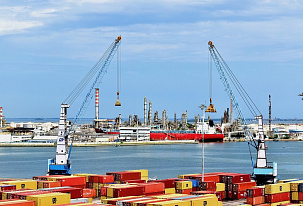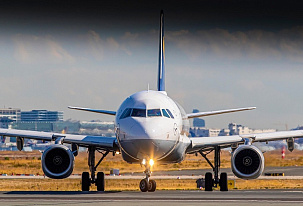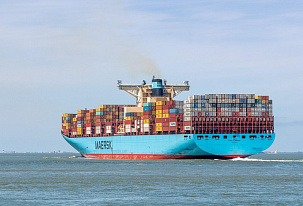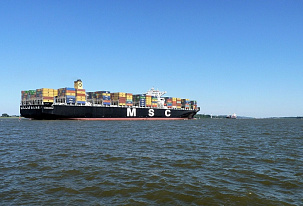Logistics News with TELS GLOBAL

Cyber incidents are becoming a major threat to business continuity
Ports look like prime targets. Ports do not need a top-grade hack to suffer similar consequences. They just need the wrong file opened in the wrong place.

Euro zone businesses perform better than expected in February
The HCOB Flash Eurozone Composite PMI, compiled by S&P Global, rose to 51.9 in February from 51.3 in January, marking the 14th consecutive month of expansion.

Polish ports set new transhipment records
In 2025, Polish seaports – Gdańsk, Gdynia, Szczecin and Świnoujście – handled 141 million tonnes of cargo. The number of containers increased to 3.9 million TEU, i.e. by 18 per cent.

Air cargo demand increases 3.4% in 2025
2025 trade lane data showed “a clear shift” in global air cargo flows from Asia–North America to Asia–Europe.

Euro zone factory activity contracts in January
The HCOB Eurozone Manufacturing Purchasing Managers' Index (PMI), compiled by S&P Global, rose to 49.5 in January from December's nine-month low of 48.8.

Europe’s road haulage recovery isn’t catching up
Europe’s road haulage sector is recovering, but the pace remains slow and uneven. Transport demand is edging, yet volumes are still below pre-crisis levels.

Legal changes from 2026: the transport sector must prepare
As of 2026, far-reaching changes to European Union regulations are reshaping how the transport, forwarding and logistics sector operates.

Europe prepares for more expensive roads in 2026
Next year, hauliers will face toll increases, the extension of charges to more roads and changes to road charging systems in several European countries.

European factory activity ends 2025 in deeper contraction
Euro zone manufacturing activity shrank further in December, private surveys showed. Factory activity in the common currency bloc slid into deeper contraction last month as production decreased for the first time in 10 months on further declines in new orders.

China is reshaping global trade in its favour
China's trade with the USA has indeed collapsed, with exports to the US falling by 29% year-on-year. The decline in American volumes was more than mitigated by expansion in the Global South.

New EU truck rules will mean more stops and more penalties for hauliers
EU transport ministers have agreed their position on a major overhaul of the bloc’s roadworthiness rules, introducing tougher roadside checks for heavy vehicles, more advanced emissions testing and fully digital roadworthiness documents.

France tightens import rules for UK exporters
UK exporters using Delivery Duty Paid (DDP) shipments to the EU will face stricter compliance requirements from 1 January, particularly for goods routed through France, following changes confirmed by French tax authorities.

Alliances control 94% of maritime shipping between Asia and Europe
Alphaliner reports that 528 container ships travelled between the Far East and Europe last month. Their combined capacity totalled 7.83 million TEU.

Bankruptcies in Poland’s transport sector up 10%
Poland’s share of the total EU freight traffic remains dominant at around 20%. The pessimism that pervades the EU manufacturing sector is reflected in the level of demand for transport services.

The increase in container fleet capacity is disproportionate to demand
The aggressive strategy of some global maritime carriers, aimed at expanding their fleets and purchasing terminal assets, has forced other operators to ramp up their investments.

The European Commission puts a more positive spin on its forecast
Moderate yet stable growth is forecast for the European economy this year. EU GDP is expected to grow by 1.4%.

Euro zone business activity grows in November, but manufacturing activity contracted
The 20-nation bloc has shown economic resilience despite high global uncertainty since the start of the year, and improving business confidence suggests the momentum is likely to remain intact.

Poland reopens border crossings with Belarus
Bobrowniki–Bierestowica has been opened to passenger, coach and freight traffic, but only for vehicles registered in EU, EFTA and Swiss countries.

Europe’s road transport sector enters Q4 2025 with rising rates
The latest Transport Intelligence report indicates that both contract and spot rates increased in Q3, even though demand and the condition of European industry remain uneven.
